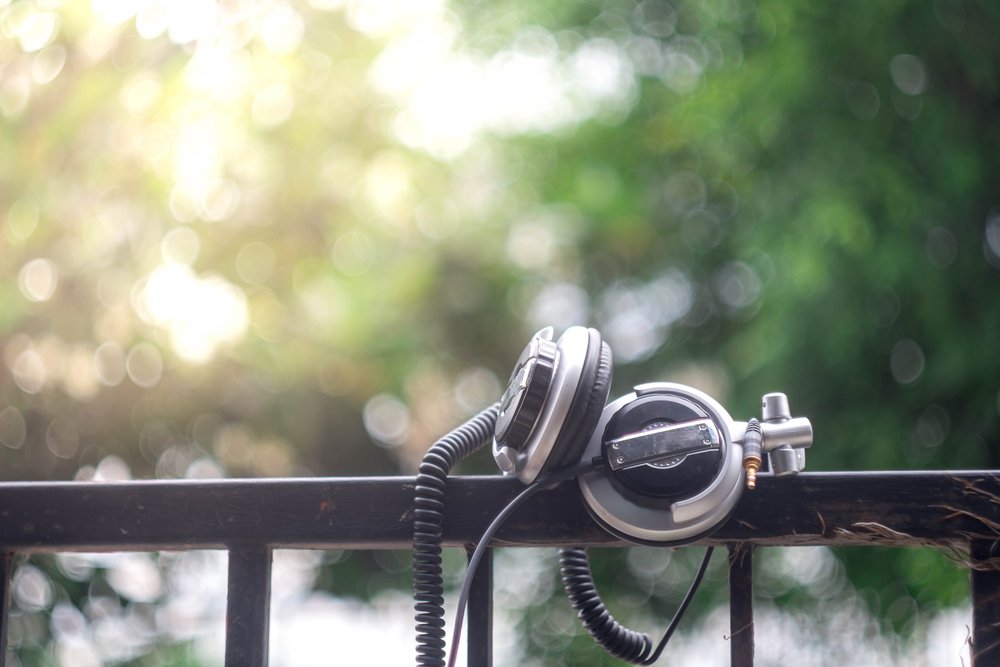Music and Memory Program Decreases Medication Use and Improves Dementia Symptoms, Study Finds

A new study found personalized music and memory therapy helped decrease antipsychotic and anti-anxiety medication use, as well as improve dementia symptoms, in people living with Alzheimer’s disease (AD) and related dementias (ADRD).
Results from the study were published online in the American Journal of Geriatric Psychiatry, under the title “Individualized Music Program is Associated with Improved Outcomes for U.S. Nursing Home Residents with Dementia.”
“Results from this study offer the first evidence that the M&M [Music and Memory] individualized music program may be associated with reductions in antipsychotic and anxiolytic [to reduce anxiety] medication use as well as improvement in behavioral and psychological symptoms of dementia among nursing home residents with ADRD,” Kali Thomas, PhD, first author of the study, and colleagues wrote regarding their findings.
According to an article written by Veronica Hackethal, MD and published in Neurology Times, the study is the largest to date evaluating individualized music and memory therapy in this setting.
Overall, the study provided the first evidence that M&M individualized programs may help decrease antipsychotic and anxiolytic use, as well as improve behavioral and psychological symptoms of dementia among long-term nursing residents with AD or ADRD.
To evaluate the benefits of M&M, researchers compared six-month outcomes in 12,905 long-term residents of 98 nursing homes that participated in the program, against the outcomes of 12,811 residents of another 98 facilities that did not participate in the program. Training for the implementation of the M&M program started in 2013.
Main results from the study include:
- The proportion of residents who discontinued antipsychotic medication use over a six-month period went up from 17.6% to 20.1% among M&M facilities, while the same rates remained stable among comparison facilities (namely, 15.9% to 15.2%);
- For anxiolytic medication, the same trend was observed. Discontinuation increased in M&M facilities (23.5% to 24.4%) while decreasing in comparison facilities (24.8% to 20%, respectively);
- M&M facilities demonstrated increased rates of reduction in behavioral problems (50.9% to 56.5%) versus comparison facilities, which scored 55.8% and 55.9% over the six-month period. However, no differences were observed for depression rates.
Music and memory therapy was found to have the potential to replace the effects of antipsychotics and other psychoactive medications used to treat dementia, with the added benefit of not having secondary risks.
The M&M program evaluated in this study was featured in the 2014 award-winning documentary Alive Inside, which showed the dramatic improvements of nursing home residents with dementia after listening to their favorite music.
The principle is simply providing residents with listening devices that allow them to play personalized music playlists anytime they want, based on their personal preferences. The popularity of the program is growing nationwide, even though more research is needed to verify the effectiveness of the program.
Limitations noted by the authors include the study’s retrospective, non-randomized design, as well as assumptions regarding timelines and regarding the implementation of the necessary equipment for the assessment (such as making sure all residents had their iPods).
Also, participation was not mandatory and facilities that did participate may have had more interest in care improvement or innovative practices than facilities that didn’t want to participate in the program.
Moreover, the findings of the study were not sufficient to identify which features of the M&M approach were most effective.
Nevertheless, the authors concluded that “although more insight is required to understand which residents are most likely to benefit from this particular music therapy program and what improvement they experience, our findings signal that in the aggregate, the M&M program is associated with improvement in the experience of care provided to residents with ADRD in nursing homes.”






